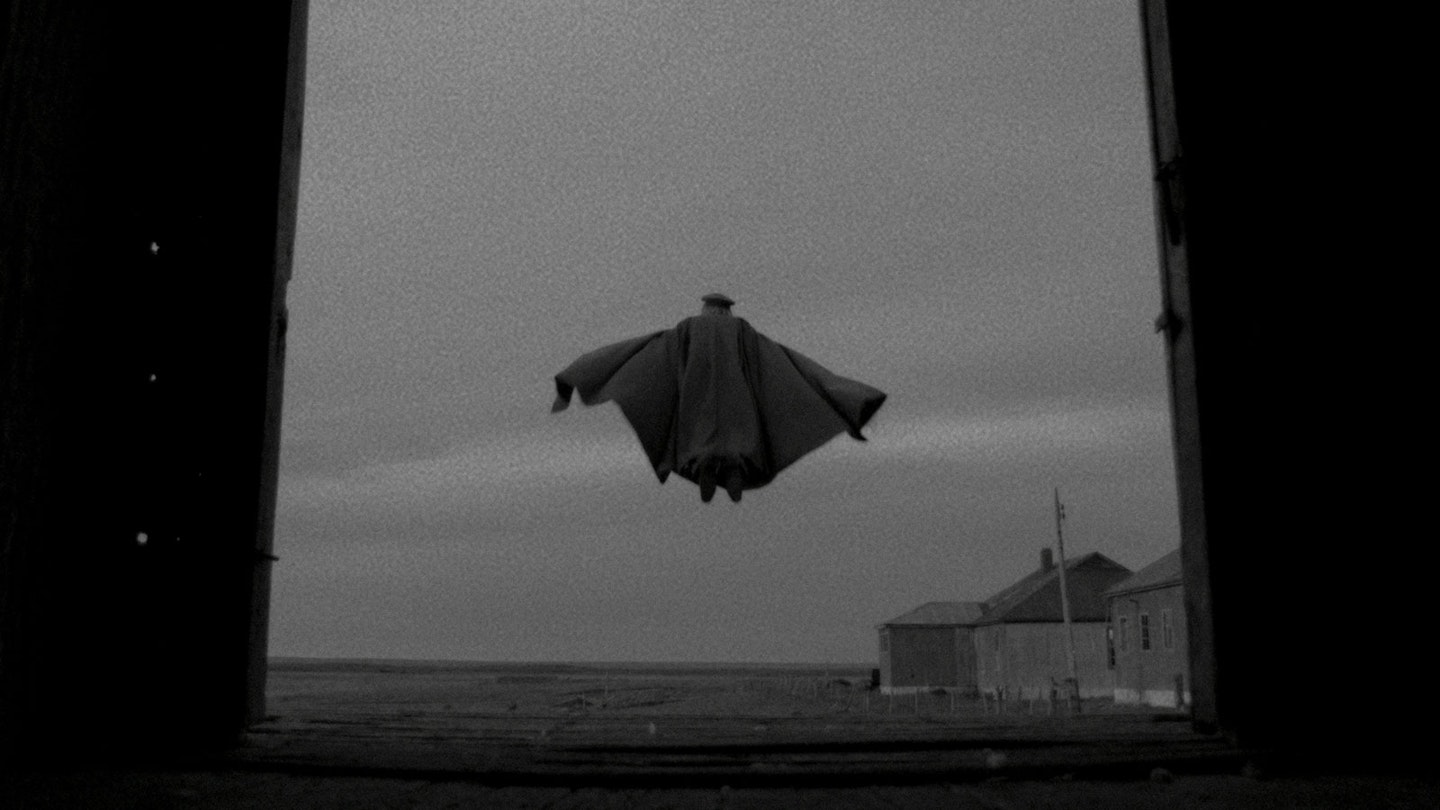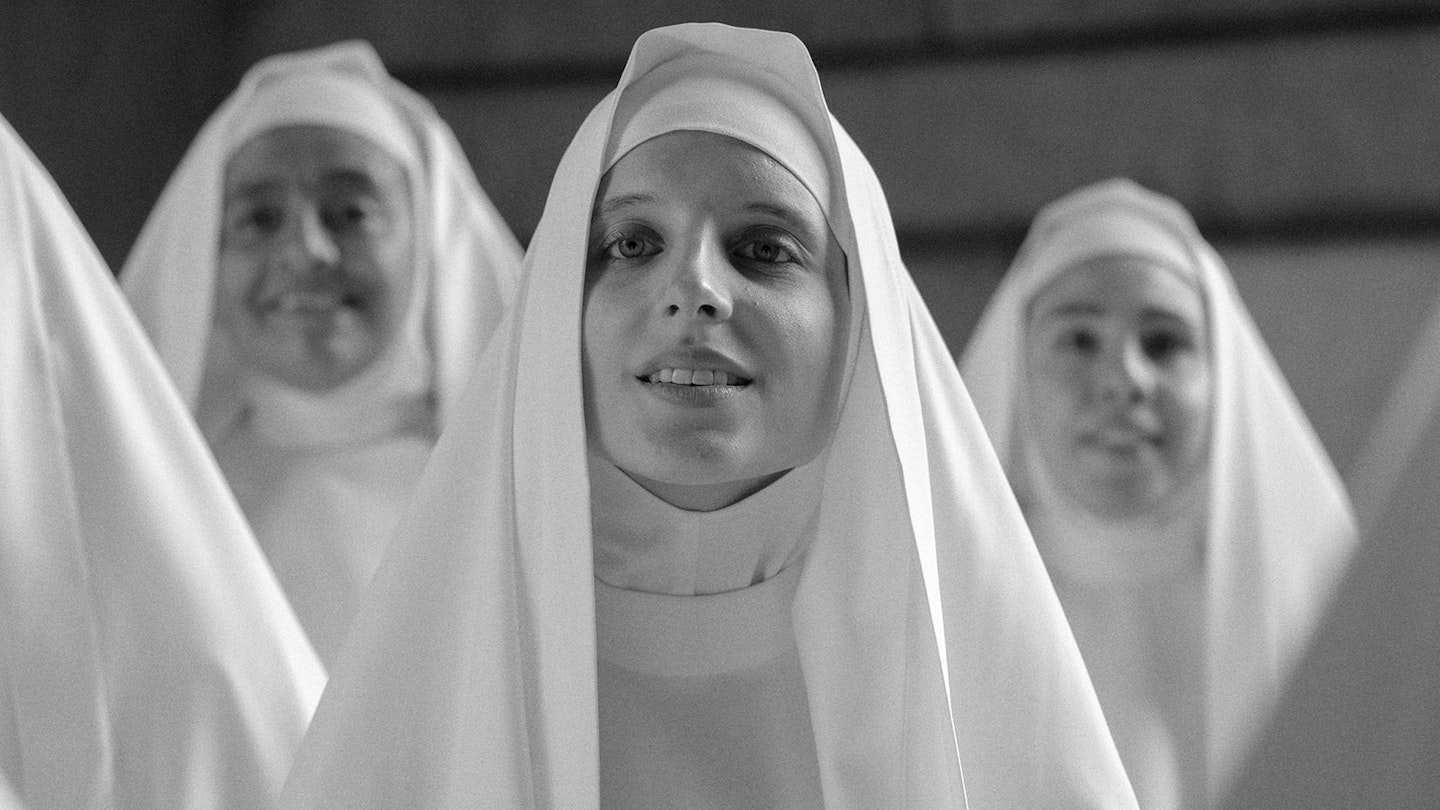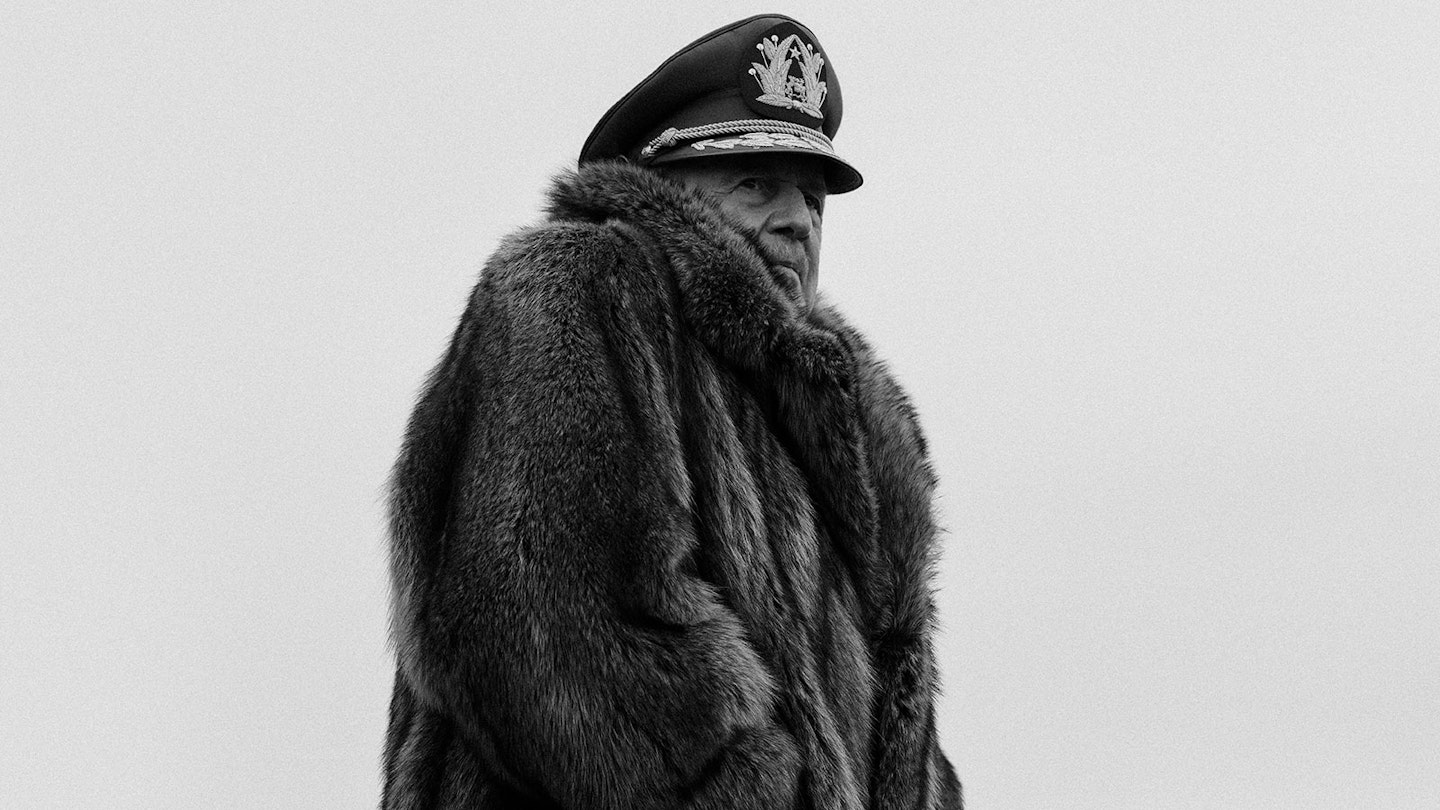Pablo Larraín is known for his artful, impressionist biopics about major figures of 20th century history — and then he’s also known for films that are a lot weirder, a lot more playful with the boundaries of reality. El Conde, his tenth, is certainly a biography of sorts about a significant real person, but it shares less resemblance to his profiles of Jackie Kennedy (Jackie), Princess Diana (Spencer) or Pablo Neruda (Neruda), and more DNA with his odder, more transgressive work, such as 2008’s Tony Manero or 2019’s neon-drenched acid trip Ema.
It’s a wild premise: what if fascist dictator and certified bastard Augusto Pinochet was in fact an immortal bloodsucking vampire, in the Bram Stoker tradition? And that in fact, his 2006 death was faked in order for him to lead a quiet life with only his wife and his illegitimately procured millions?

In this telling, Pinochet lived centuries before his brutal rule of Chile and continued well after being deposed. He was, in fact, a resentful aristocrat from revolutionary France, and his driving motivation — beyond drinking the claret of innocents, ideally virgins — was to sustain the power and status quo of the ruling class. Chile just happened to be a handy country for him, geopolitically speaking, to subjugate.
The film absolutely works as an old-fashioned horror in an arthouse cape.
It is really only for Chileans to say whether this is a tasteful or appropriate way to lampoon a leader who executed over 3,000 political opponents — the so-called “disappearances” — and interned and tortured many more. Genre movies are absolutely a legitimate framework to dissect a painful history, and Larraín — who has explored Pinochet’s legacy before, in 2010’s Post Mortem and 2012’s No — doesn’t shy away from listing his crimes, even if they only appear in gentle accusations. These mostly come from Paula Luchsinger’s character, a nun working undercover as an accountant, hoping the power of Christ will compel him. Pinochet’s invented crimes in his earlier French guise are depicted, on the other hand, and in a fairly shockingly gratuitous manner, with an uncomfortably gendered bent to them.

But there’s a nagging sense this kind of satire isn’t sharp enough to skewer such an irredeemable fascist — that maybe, by making Pinochet a cartoonish or fanciful villain, as opposed to an actual one, Larraín lightly defangs his own damnation. For such a dark tale, it’s played curiously lightly, the tone leaning towards quirk as much as anything.
Still, wherever you land on the merits of its political and historical mickey-taking, the film absolutely works as an old-fashioned horror in an arthouse cape. With veteran cinematographer Edward Lachman behind the lens, Larraín has crafted one of the more beautiful and eye-popping takes on the vampire myth, the gorgeous, thickly contrasting black-and-white imagery endlessly captivating. Any time the impaler flies off looking for fresh victims, it proves as hauntingly, elegantly spectacular as anything in Larraín’s handsome filmography; one sequence where a newly bitten rookie vampire balletically takes to the skies for the first time is particularly stunning.
It’s funnier and more entertaining than might be expected too, with a third-act reveal — in which an unseen narrator suddenly enters the frame, a twist that will have British viewers howling — proving to be a truly audacious left-turn. (Or should that be right-turn?) That only speaks to El Conde’s biggest tension, though: the lingering question of whether it takes its bad guys seriously enough.
